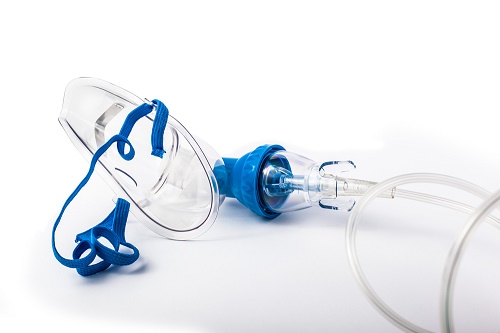Anaphylactic shock is a serious and sometimes fatal complication of anaphylaxis, a severe type of allergic reaction. Anaphylaxis and anaphylactic shock can affect people of any age or sex, according to the American Academy of Allergy, Asthma and Immunology.
Anaphylaxis
Anaphylaxis is a severe, whole-body reaction to an allergen, which is a substance that causes an allergic reaction. When some people are exposed to a particular substance, they develop sensitivity to it. When they encounter the allergen again, they suffer an allergic reaction.
Someone can develop anaphylaxis within seconds or minutes of exposure to something they are allergic to, such as venom from a bee, peanuts or some types of medication. Penicillin is the most common cause of anaphylaxis, according to the World Allergy Organization. Certain muscle relaxants used for anesthesia can also cause anaphylaxis. Patients and healthcare workers can also develop sensitivity to latex used in gloves, and this sensitivity can lead to anaphylaxis.
Unlike other types of allergic reactions that cause localized problems, such as itchy skin or puffy eyes, an anaphylactic reaction affects the entire body. Tissues in different parts of the body produce a flood of histamines and other chemicals that cause a variety of reactions.
Anaphylactic Shock
A person experiencing a severe case of anaphylaxis can go into anaphylactic shock. The deluge of chemicals released by the immune system during anaphylaxis can cause blood pressure to drop and airways to narrow, which blocks normal breathing.
Symptoms of anaphylactic shock include:
- Low blood pressure
- Rapid, weak pulse
- Skin rash
- Nausea and vomiting
Some patients describe a “sense of doom” during anaphylaxis and anaphylactic shock. Swelling may occur around the lips and tongue. Symptoms develop rapidly and reach their peak in severity within 3 to 30 minutes.
Treatment for Anaphylactic Shock
Anaphylactic shock is a serious medical condition that requires immediate care from an emergency department. Without prompt medical treatment, anaphylactic shock can result in unconsciousness or even death.
Once at the emergency department, doctors and nurses will establish an airway to help the patient breathe and administer oxygen as necessary, and start an IV to infuse fluids to help stabilize blood pressure.
The most common treatment for anaphylactic shock is a shot of epinephrine, also known as adrenaline, which raises blood pressure by constricting blood vessels, relaxing smooth muscles in the lungs to improve breathing, stimulating a regular heartbeat and reducing swelling around the face and lips. Consult your Houston endodontist if you have more questions.
